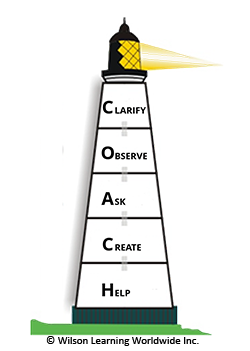La Performance par le Coaching (Coaching for Performance)
High-performing organisations frequently view coaching in the context of fostering performance and fulfilment rather than focusing on increasing output. Their employees are more engaged in their work, motivated to expand their skill sets over time and driven to succeed.
Leading for Performance: Coaching for Performance (LFP-CFP) offers first-line and mid-level managers coaching skills and techniques to create the conditions under which employees can succeed.
Programme Outcomes
Leading for Performance: Coaching for Performance enables organisations to gain a competitive advantage using an effective, structured coaching approach that taps employees’ potential and leads to improved performance and fulfilment. Managers can alter their coaching focus from managing output to managing the conditions for successful performance.
Approach
Further Reading:
"Les 5 premiers éléments nécessaires à tout leader pour être source d’implication des employés"
Leading for Performance: Coaching for Performance is a one-day instructor-led module that can be facilitated by Wilson Learning or by a leader-trained in-house professional. This enables:
- Face-to-face interaction among the participants and facilitator
- True-to-life skills practice with immediate in-person feedback
- The opportunity for real-time commitment to action
ENABLING IMPROVED PERFORMANCE
Leading for Performance: Coaching for Performance features the Coaching for Performance Planner and Job Aid Card so participants can fine-tune and apply new skills and behaviours on the job. Involving management and training them to coach is important for successful implementation.
Participants who also complete Setting Goals for Success, and Reviewing Performance will have the skills and knowledge to implement a more complete performance management process.
MEASUREMENT AND EVALUATION
Organisations that implement Leading for Performance: Coaching for Performance have access to a broad range of tools to measure initial behavioural changes and business results. For LFP-CFP, one approach may be a web-based survey of participants’ direct reports to identify the degree of change and the differences this change makes. More involved and thorough research options are also available.
To learn more about measuring the impact of learning, visit Measurement and Evaluation Services.



 Se il vous plaît remplir ce formulaire pour télécharger la fiche d'information pour La Performance par le Coaching (Coaching for Performance)».
Se il vous plaît remplir ce formulaire pour télécharger la fiche d'information pour La Performance par le Coaching (Coaching for Performance)».



